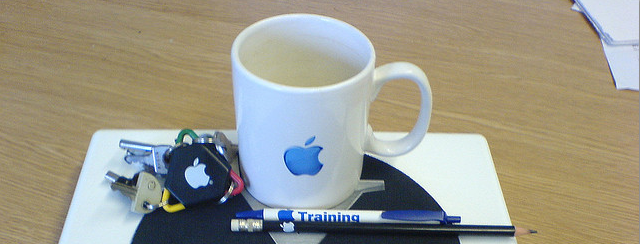Apple has been in the limelight again, but this time Steve Jobs is not around to vindicate it from tax avoidance allegations: It is accused of not paying its fair share of corporate taxes. Uncle Sam wants sweeter Apple as he is hungry.
Common sense is uncommon in Washington. This Apple allegation proves that most politicians — both blue and red — think that Apple needs to pay more taxes for its growing cash hoard overseas.
Street smart approach is to circumspect this allegation with our own lenses of facts, and educate those who want to use common sense and not being influenced by the demagoguery in Washington.
Before we divulge into nuances of corporate taxes, let’s know a basic economic fact: Corporations don’t pay taxes, consumers do pay taxes.
Anyone who believes that a company must pay more taxes has not clearly understood the fact that companies do not pay taxes, so to join a chorus against evil corporations is fool’s act.
The notion that these cash rich corporations need to pay more taxes is pervert because our elected officials take every opportunity to minimize their tax bill as allowed by IRS, so these evil corporations have same right to do so for their share holders.
As a shareholder, I feel that Apple deserves right to minimize its tax bill lawfully like any other citizen of our country including our elected officials.
Corporations don’t pay corporate taxes
This may sound oxymoronic, but the facts don’t lie. Most corporations pass their tax liabilities to consumers. Corporations add taxes to their cost of goods, and thus build that into the retail price of the consumer goods.
While attacking success and successful businesses is in vogue in Washington, we the people ought to remember that we bore the burden to pay for every tax increase.
America has highest corporate tax rate in the world
At 35%, America has the highest corporate tax rates among all industrial nations. It’s true that Apple has billions in its overseas accounts, but Apple has also tried to influence Washington to lower the corporate taxes so that it can reinvest that capital in America. Think about it. How many jobs Apple can create if it brings this huge cash hoard back home, if our government encourages it do so rather than punishing for being one of the most successful companies in the world.
A case for Fair Tax
Our own former Fed chairman Alan Greenspan has predicted that if America lowers its corporate tax rates, more than $13 trillion dollars cash hoard sitting idle in the overseas accounts owned by various American corporations can come back to our mainland.
Our tax code allows corporations to defer paying taxes indefinitely on the profits made overseas in their subsidiaries. This is the culprit: it allows these corporations to grow their foreign subsidiaries faster by reinvesting profits back into growing their businesses overseas. The net effect is starkly opposite to what most Americans want: more jobs get created overseas by US corporations.
Imagine if we change tax code so that it is conducive to more capital investment and growth in America, our economy will skyrocket.
Imagine how major economic jolt our country can get if new factories will get built and, as a result, millions of new jobs kick-start our stagnant economy!
I also believe that more capital investment and job growth means more revenue for our government.
The latest IRS scandal and Apple’s allegation also shed light on a larger issue: Our tax code is beyond anyone’s ability to understand and comprehend as it is mammoth.
What we need is a new tax strategy such as fair tax or flat tax.
Our tax code is not only complicated but also a tool used by both parties to advance their political agenda. Apple is cash rich, but there is no one who can cast a stone at Apple as everyone tries to pay least possible to our beloved uncle. Do you agree?
photo by: MikeMac





